Dry eye disease is managed rather than cured. However, advances in science and technology have resulted in significant developments in ways to treat dry eye disease, at home and at your Ophthalmology office.
Dry eye disease is a chronic condition where your eyes don’t produce enough tears, or produce poor-quality tears. Your eyes can become dry, irritated, itchy, and even watery if you don’t have enough good-quality tears.
Dry eyes can occur due to various factors, including aging, environmental factors, medication, and hormonal changes. Furthermore, dry eye symptoms could indicate an underlying health issue. If you’re curious about what type of supplements you can take at home to reduce the symptoms of dry eye disease, this blog is for you.
Treating Dry Eye at Home
There are treatment options available to soothe your dry eye that you can do right at home. Over-the-counter eye drops and anti-inflammatory medications are common treatments for dry eyes. However, some people seek relief from alternative remedies and supplements such as fish oil.
Omega 3 Fatty Acids
Omega-3 fatty acids are healthy fats found primarily in fish, nuts, and seeds. They are known to have powerful anti-inflammatory properties in the body.
Fish oil is created by extracting two types of omega-3 fatty acids from the skin of oily fish such as mackerel or salmon. These omega-3 fatty acids are known as:
- Docosahexaenoic acid (DHA)
- Eicosapentaenoic acid (EPA).
The omega-3 fatty acids DHA and EPA play important roles and are found in every cell of the human body. They are also the building blocks of important chemical regulators.
These omega-3 fatty acids may help the eye produce more oil for tears while also reducing inflammation around the eye. A diet rich in omega-3 fatty acids can boost production in your meibomian glands, which produce the oily layer of your tear film. The oil produced by these glands prevents your tears from evaporating too quickly, keeping your eyes moist.
You can introduce omega 3’s into your diet through supplements in a pill form or by eating fatty fish such as:
- Salmon
- Albacore tuna
- Mackerel.
Vitamin A
To relieve dry eye symptoms, your eye doctor may recommend vitamin A eye drops. Vitamin A protects the cornea of the eye by acting as a barrier against bacteria. This barrier has the potential to reduce the risk of eye infections.
Carrots, spinach, tomatoes, and other orange and yellow fruits and vegetables are excellent sources of Vitamin A. If you want to take vitamin A supplements, proceed with caution, as too much vitamin A can have negative consequences.
Zinc
Zinc is also important for maintaining eye health. It’s the mineral in charge of transporting vitamin A from your liver to your retina as well as producing melanin, a substance that protects your eyes. Zinc is abundant in dairy, whole grains, nuts, legumes, and meat.
Vitamin B12
According to one study, combining oral vitamin B12 supplements with artificial tears improved symptoms of dry eye syndrome. The same study discovered that vitamin B12 may help repair the corneal nerve layer, reducing the burning sensation associated with dry eyes.
Consult an eye doctor near you before taking any vitamin B12, as there is no single recommended dosage for dry eye symptoms.
Artificial Tears
Artificial tears are eye drops that are used to moisturize and lubricate the outer surface of your eyes. These eye drops can be used to treat dry eyes caused by aging, medications, hormonal changes, eye surgery, or environmental factors such as windy or smoky environments.
Several different types of artificial tears treat different causes of dry eye disease:
- Tear-Changing. If poor tear quality is causing your dry eye disease, these eye drops can help by changing the chemical composition of your tears.
- Eye Coating. Eye-coating eye drops moisturize your eyes. If you have evaporative dry eyes, they may be the solution for you.
- Oil Stabilizing. If you have evaporative dry eyes due to a lack of oil production, you should use oil-stabilizing artificial tears.
- Preservative Eye Drops. This type of artificial tears is frequently sold in multidose bottles and contains preservatives that inhibit the growth of bacteria. Preservatives may irritate your eyes if you have moderate or severe dry eyes.
- Preservative-Free Eye Drops. If you use artificial tears more than four times per day, this type is usually recommended.
Talk to Your Doctor
Certain supplements may be beneficial if you have dry eye symptoms. Vitamin A can stimulate tear production, vitamin B12 may relieve burning, and supplements containing omega-3 fatty acids may help to reduce inflammation.
Before taking supplements or vitamins for dry eyes, consult your doctor. Some of these supplements can be dangerous in high doses. Your doctor can advise you on the best vitamin and dosage for your specific symptoms. If you’re experiencing dry eye disease symptoms and are wondering what options you have for dry eye management, contact us today. Riverside Eye Specialists is dedicated to using the best technology available to relieve your irritated eyes.




